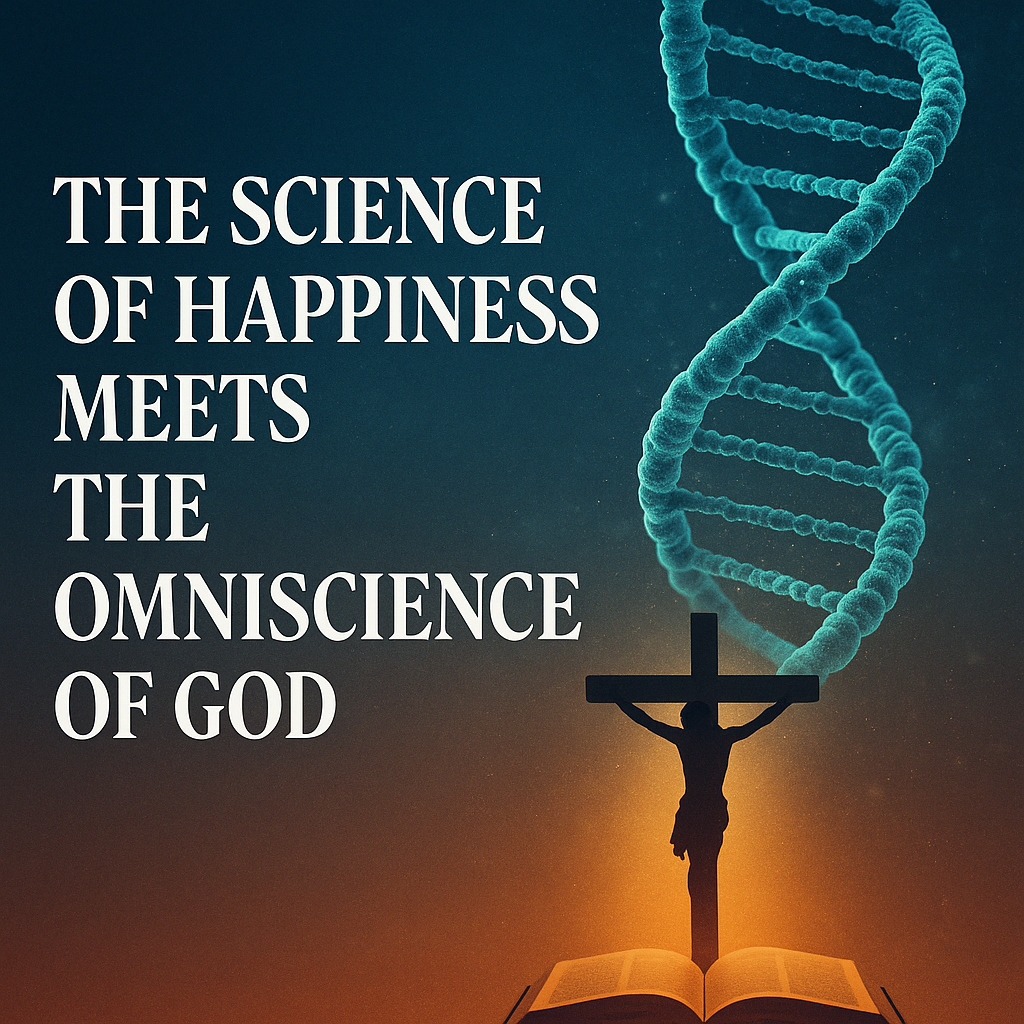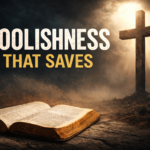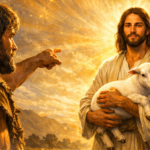
Text: John 10:22–30; Acts 20:17–35
Theme: “The science of happiness meets the Omniscience of God” – 2: Relationships
_______________
Intro – When sin entered the world, it broke four foundational relationships:
Our relationship with God—we turned away from Him. Sin created a gap.
Our relationship with ourselves— sin destabilizes us, and suddenly, we were ashamed, anxious, and unsure.
Our relationship with others—the first marriage turned into the first blame game. We only need to look around and see how interpersonal relationships can be messy.
Our relationship with creation—We aren’t always good stewards of God’s gifts.
And, of course, there is the fifth and most tragic break: the day your smartphone screen cracked. That one still stings.
But seriously, it’s no surprise that even modern researchers tell us deep, life-giving relationships are essential to happiness. Harvard studies of well‑being consistently highlight connection, belonging, and shared purpose. One professor in particular—whose talk inspired this series—identified four pillars of flourishing: faith, family, friendship, and meaningful work.
Last week we explored faith. The world may call it a helpful tool, but we discovered it is far more: a gift from God that meets us when we aren’t even looking. Faith doesn’t just help us cope—it brings us life. We saw in the story of Saul how Jesus didn’t wait for him to search for truth; He found him, knocked him down, and gave him new eyes, a new heart, and a new life.
This week, we turn to the second pillar: relationships. The professor said they’re essential to happiness—and he’s right. But the Christian faith doesn’t merely affirm that; it deepens it. Because the most important relationship isn’t one science can fully explain. It’s the one that shapes all the others: our relationship with the Shepherd.
Transition to Text: John 10
Jesus says in John 10, “My sheep hear my voice. I know them, and they follow me.” We are called to connection and belonging —not just with each other, but with Him. Until we’re connected to the Shepherd, all our other relationships remain echoes of what they’re meant to be. The world offers communication, affinity, even compatibility—but only Jesus offers true belonging.
- God’s Voice Restores the Broken
Jesus, the Good Shepherd, knows His sheep and calls each one by name. In Eden, sin shattered humanity’s original relationship with God—and with it, every other bond. Yet in Him, that relationship is restored. As we are healed inside, grace and healing flow outward into every corner of our lives and relationships.
How do you nurture a relationship? Imagine someone you love pouring out their heart in a letter—your response might be a quick “Thanks!” set aside until you have time. Or suppose they prepare a meal—an act of love—only to be met with a casual “Nice dinner.” Our relationship with Jesus, however, is nurtured not by polite thank‑you notes but by His ongoing letter of love—Scripture—His meal of grace in Word and Sacrament, and our constant walk with Him. This relationship is not just like the ones we know; it is perfect, sustaining, and eternally alive.
Even when we fail on our hand, the Shepherd never ceases to connect and reconnect us in this relationship grounded in his love.
- Relationships that Reflect the Shepherd
Mother’s Day reminds us that family is a divine gift. Parenthood, especially motherhood, reflects God’s nurturing care. As we live in Jesus’ love, our family relationships are reshaped by forgiveness, patience, and sacrificial love. Yes, family can be messy and challenging—and it can also be joyful and life‑giving. We can pray for discernment, wisdom, and love as we navigate tensions with parents, children, and extended family. And may we cultivate hearts of gratitude for everything God has provided and continues to provide through our families.
Because relationships are not just about wellbeing, but about living our faith
Remember: we are sheep who hear the Shepherd’s voice. We may differ in many ways, but we share the same identity as God’s precious flock.
- Friendship: Chosen Relationships
Harvard’s happiness research ranks real friendship among the strongest predictors of well‑being. Jesus had friends—He called them friends—because He chose to love them deeply, not because they were always easy to love.
Yet in our digital age, it’s all too easy to substitute likes and emojis for true presence. We can make use of those, for sure. But they complement, not substitute friends.
Real friendship is not built on convenience but on commitment; not on surface‑level chit‑chat, but on shared faith, truth, and vulnerability.
Some argue that digital communication can replace face‑to‑face connection. But Jesus died for our whole selves—body and soul—and there is a reason physical presence remains crucial. Our bodies matter, our touch matters, our shared space matters. Even the faithful introvert thrives when embraced by community.
- The Family of Faith
This principle extends to our family of faith—where earthly family and chosen friendships converge. God, Ourselves, others, Creation
Virtual tools and AI resources are here to stay, and we’ll use them wisely. Yet they can never replace our bodies gathered in one place, for Christ died for our bodies, too. There’s no substitute for gathering in person, face to face. The body of Christ is a physical reality, a living fellowship of presence, touch, and shared experience.
Too often we treat church like a gas station: we pull in, get what we need, and go. But Jesus calls us to more. This is not just a crowd—it’s a family. We walk together. We forgive one another. We annoy one another sometimes. We grow. And we stay. Church is where the Shepherd gathers the sheep, calls them by name, and teaches them to love one another.[1]
The science of happiness can tell us that relationships make people happy—and it’s true. It describes and promotes good relationships. But only Jesus restores what sin broke. Only Jesus calls you by name. Only Jesus knows every cracked corner of your soul and says, “Follow Me.” So whether today you’re celebrating a mother, missing a friend, struggling with your family, or searching for community—hear the voice of the Shepherd.
Conclusion: Real happiness isn’t found in having perfect relationships. It’s found in being held by the Perfect Shepherd. Jesus doesn’t just offer coping strategies or communication skills; He offers restoration. In Him, our broken connections—our guilt, shame, and isolation—are healed. And He sends us back into the world not as isolated individuals, but as part of a flock, a family, a fellowship.
You are known. You are loved. You are not alone.
Because in him you are connected to Forgiveness, Joy and Peace that will never fade. And you are grounded in His Love.
Song: GROUNDED IN YOUR LOVE
Direct my eyes to you, o Lord
that they may always see Your light.
Protect me from doubt and fear;
things that cloud my sight.
For I know of the stones ahead;
I long to stand, and not to fall.
I pray that you will guide my steps,
in Your strength, I’ll face it all.
From your hand, o Lord
comes my hope and peace,
for Your Grace alone
brings my soul release.
Father, in Your Word
I find all my strength
– as my heart remains
grounded in Your Love.
O keep us in The Way, o Lord
that leads to our eternal Home.
In Jesus, Life begins by faith
and lasts forevermore.
Your House is free of pain and tears;
a place where joy will know no end.
So today I ask again, o Lord:
hold me fast within your Hand!
Lucas Andre Albrecht, 2008
English Version: 2025
_____________________________
[1] We see this Shepherd-shaped love lived out powerfully in Acts 20:17–35, where Paul bids farewell to the elders in Ephesus. This isn’t a cold goodbye—it’s a tearful, heartfelt moment among people who have shared life, faith, and mission. Paul says, “You yourselves know how I lived among you…” (v.18). These weren’t superficial connections; they were deep bonds formed through time, truth, tears, and love. He had admonished them with tears, served with humility, and reminded them that “It is more blessed to give than to receive” (v.35). This is what happens when the voice of the Shepherd forms a flock: not just acquaintances or coworkers in the Church, but true spiritual family—a people who grieve, embrace, pray, and walk together. That’s the kind of relationship that happiness science observes, but only Jesus can create.






